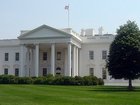In a Middle East torn apart by war and conflict, fighters are increasingly using food as a weapon of war.
Millions of people across countries like Syria, Yemen and Iraq are gripped by hunger, struggling to survive with little help from the outside world. Children suffer from severe malnutrition, their parents often having to beg or sell possessions to get basic commodities including water, medicine and fuel.
 Full Story
Full Story
Voters take a first stab at electing Democratic and Republican nominees on Monday in Iowa -- a state with a patchy record of picking the eventual U.S. president but which can easily recast the race.
Iowa was so central to Barack Obama's path to the presidency that his 2008 campaign manager David Plouffe once summed up his whole strategy as "win Iowa, or else."
 Full Story
Full Story
A Facebook post about the death of a Syrian refugee in Germany sparked a storm of reaction this week, only for the author to admit making it up, highlighting a rash of online rumors fueled by a record asylum seeker influx.
At first glance, it was all too credible: a 24-year-old Syrian had been queuing for days in the cold at Berlin's notoriously chaotic refugee registration center Lageso even though he was ill.
 Full Story
Full Story
The groundbreaking war crimes trial in The Hague on Thursday of former Ivory Coast president Laurent Gbagbo has rekindled a bitter row across Africa over the international justice system.
With Gbagbo the first ex-head of state hauled into the dock at the world's only permanent war crimes court, some in Africa are lashing out at the International Criminal Court (ICC) for allegedly pursuing Africans alone.
 Full Story
Full Story
Egypt's top auditor ignited an uproar when he estimated that corruption had cost the country billions of dollars. Yet the anger was not directed against the government or even long-established oligarchs, but at the auditor himself.
Hesham Genena has endured a barrage of criticism from pro-government media, well-connected businessmen and senior officials since he was appointed in 2012. But now President Abdel-Fattah el-Sissi, a former military chief who has vowed to wipe out corruption, appears to be siding with Genena's critics.
 Full Story
Full Story
Spain's acting Prime Minister Mariano Rajoy is scrabbling to cling to power, but a relentless series of scandals engulfing his conservative Popular Party (PP) may well be the final blow to his hopes.
The PP "is starting to have more members in the dock than in power," the left-wing El Pais daily sniped on Wednesday, just as Transparency International announced that Spain registered one of the biggest global drops in its corruption index over the past four years.
 Full Story
Full Story
Michael Bloomberg to the rescue? In a U.S. presidential campaign already distinguished by volatility, the former mayor of New York is reportedly weighing up whether to launch a late bid as an independent.
Associates told The New York Times at the weekend that Bloomberg was alarmed by the rise of Donald Trump on the extreme right-wing of the Republican party and troubled by Hillary Clinton's lurch to the left in a bid to contain the left-leaning Vermont Senator Bernie Sanders.
 Full Story
Full Story
Seen as an anti-Islamist hero by some and a threat to peace by others, the fate of Libya's army chief has emerged as a stumbling block to efforts to forge a unity government.
General Khalifa Haftar, 73, presents himself as Libya's savior in the face of a growing jihadist threat, but is himself a hugely divisive figure.
 Full Story
Full Story
Some 250 million children -- one in nine children worldwide -- live in countries affected by violent conflicts, UNICEF lamented Tuesday, saying it needed nearly $3.0 billion this year to help the most vulnerable of them.
"The number of children trapped in humanitarian crisis around the world is both staggering and sobering," the U.N. children's agency said.
 Full Story
Full Story
Don't get pregnant for the next two years.
That is the warning El Salvador's government has issued women as Zika, a tropical virus blamed for causing severe birth defects, sweeps Latin America and the Caribbean.
 Full Story
Full Story



